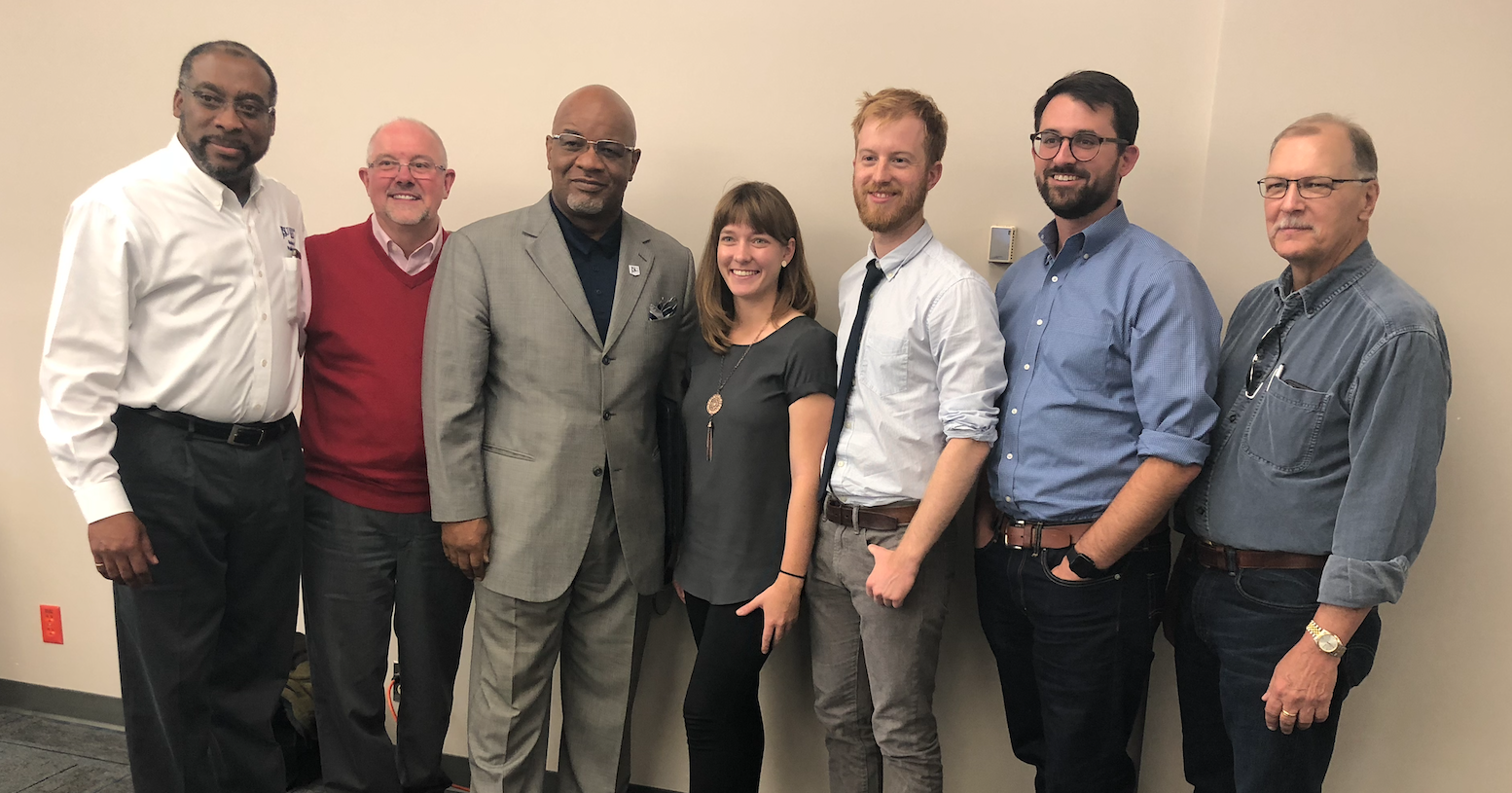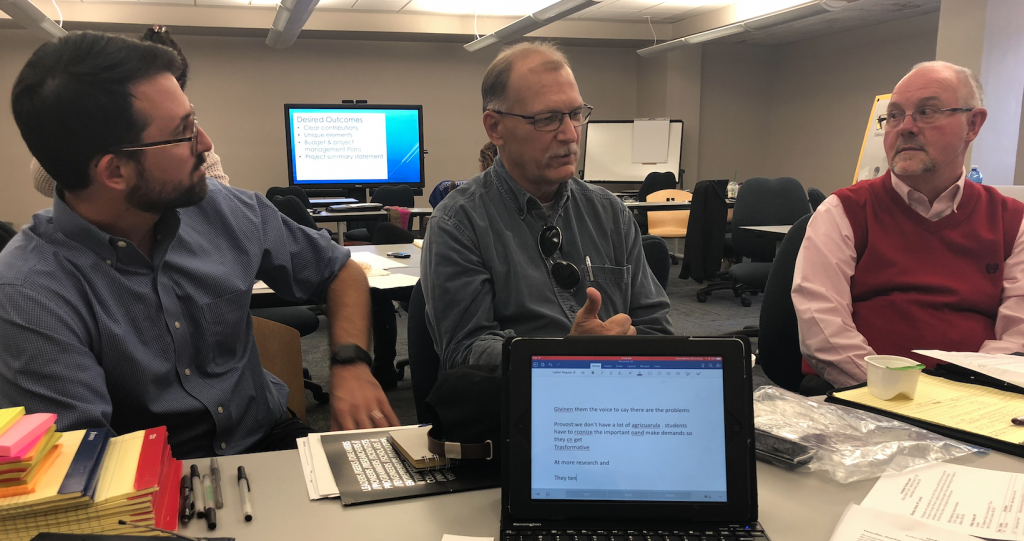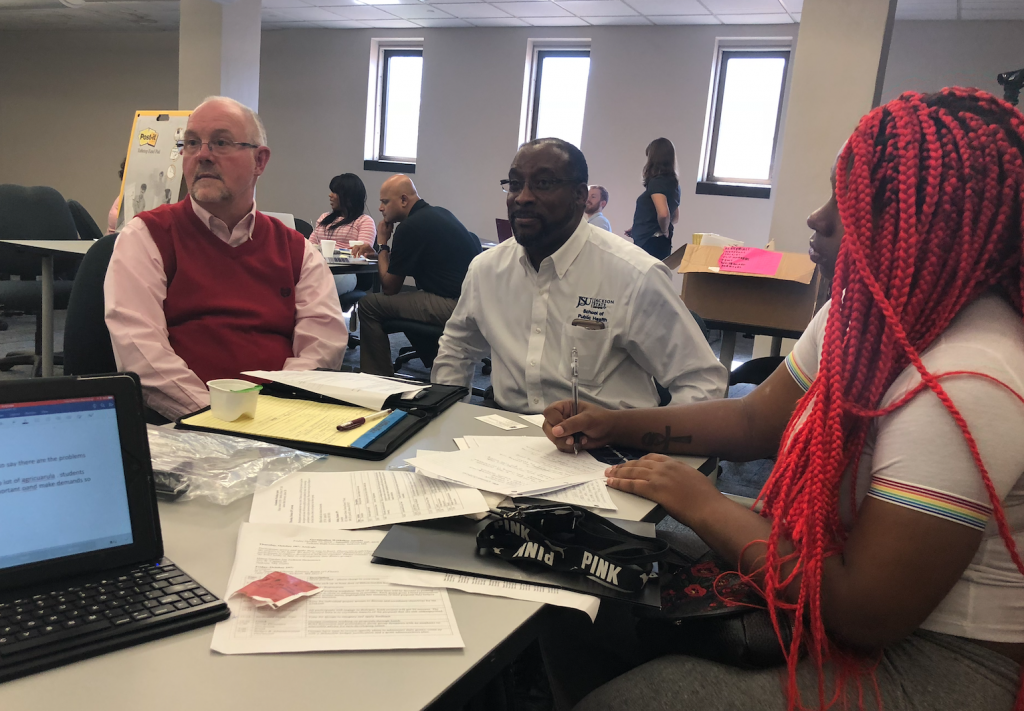
![]()
[hr]Jackson State University recently hosted a national Germination Workshop aimed at getting academic professionals from minority-serving institutions involved in research on food safety and water security that’s funded by the National Science Foundation.
The event, coordinated through JSU’s Division of Research and Federal Relations, was hosted by associate provost Dr. Joseph A. Whittaker. Besides JSU, other participating groups included the American Indian Higher Education Consortium, the Hispanic Association of Colleges and Universities and the National Association for Equal Opportunity in Higher Education that encompasses HBCUs.
Participating institutions included University of Texas Rio Grande Valley; University of Puerto Rico; and California State University, Fresno.

Whittaker said it’s imperative that others see how underrepresented institutions contribute to food safety and water security. He noted problems that result from inadequate supply of food in rural areas, particularly in a so-called food desert such as Mississippi.
Water also is especially important to food security because crops and livestock rely on this life-sustaining substance. Thus, Whittaker touts the valuable research underway by participating minority-serving institutions.
“We’re trying to demonstrate that we have individuals with the talent, capabilities and skills set to perform at the national level. We’re attempting to solve real-world issues – not just the community we serve but also the entire nation. Our involvement addresses the unspoken generalized perception that minority-serving institutions are not up to par and aren’t up to the level to engage at the top levels of science,” Whittaker said.
The JSU administrator said the collaboration ultimately would result in groundbreaking research. “This is a win-win for faculty and students because it sets the stage for us to look at problems differently and think beyond ourselves, issues and challenges to address broader problems.”
Dr. Scott Poole is a research scientist at the National Center for Supercomputing Applications at University of Illinois at Urbana-Champaign, where most of the Germination Workshops are held. He said this partnership is the third in a series with academic scholars.
Pool said, “We’re putting together projects and teams that will hopefully turn into grants for students at these colleges and universities.” Furthermore, said Poole, “A lot of researchers here are as good as any I’ve ever seen. The main issue is we just have to give them a seat at the table.”
Dr. William C. Barley, also from University of Illinois, further explained why this project is different from a lot of others.
“We don’t just assume that getting diverse folks in a room is enough to make projects happen. We’re drawing from a wide array of findings and research on collaborative sciences and teams to make assertions,” Barley said.

He added that one benefit the group has is that “our participants are really close with the communities that are disproportionately impacted by food and water security.”
Barley also noted that most of the mainstream science on food and water security focuses on food production – growth, crops and making more food. “One of the key themes across all teams is the recognition that producing food is not enough to solve the problem. Food access is embedded within communities – municipalities and government.”
As well, he said, “There are many social issues to access. … One thing I think that is really exciting about our project is that each of us takes these matters very seriously. There’s an interest in taking a reasoned understanding of the specific nature of the communities we’re trying to engage to solve food security for them.”
Meanwhile, Whittaker argues that there’s a perception of a food shortage. He argues, however, that’s not the case because so much food is wasted each day. As a result, he describes the problem as more about access and distribution.
“If you look in some of the communities, especially in Mississippi, you can have the same food supplier and supermarket chain. But if you go in minority-serving communities, the quality of what you see on the shelves is very different from when you go out into the suburbs,” Whittaker said.
“Those are issues and challenges that must be overcome. The good thing about this is that we’re not just addressing the problem, but we’re training young minds of students to recognize what those issues are. It’s a sustainability issue as well.”
Barley echoed the importance of students in providing solutions to food and water issues.
“The common theme is making courses and research opportunities for undergraduates meaningful. We must prepare students for learning opportunities and help them engage with their own communities, while educating them in the state-of-the-art science. We must also give them a voice to state solutions to problems in their communities so they can make a difference.”







